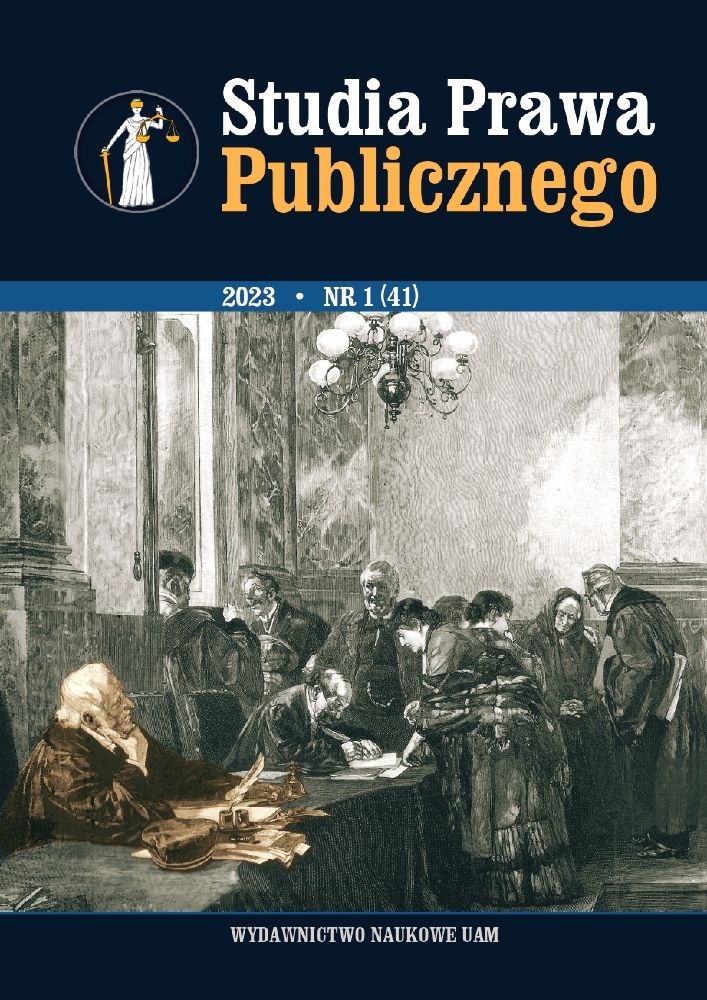Abstrakt
The aim of this case comment is to discuss whether it was justified that the General Court in its judgment dated 9 February 2022 in the case Sped-Pro (T-791/19) annulled the European Commission’s Decision No. C(2019) 6099 final dated 12 August 2019 r. (case AT.40459) connected to the potential abuse by PKP Cargo of a dominant position on the market for rail freight in Poland. In this judgement, the General Court argued on the basis of the rule of law principle and applied analogically the judgment on the European Arrest Warrant. In this regard, the analysis starts with the rule of law principle, the judicial independence of courts and administrative authorities, the obligation of loyal cooperation between European Union and member states to ensure fulfilment of the obligations arising out of this Treaty, both in the light of Union law and European courts case law.The next part of this case comment attempts to assess whether the General Court was justified in analogically applying the judgement dated 25 VII 2018 r. C-216/18 PPU Minister for Justice and Equality on the European Arrest Warrant in the field of European policy on competition. The analysis ends with the description of the practical consequences of the Commission’s finding that the President of UOKiK and the Court of Competition and Consumer Protection are not independent. In the last part of the text, the author also indicates the consequences of the proper implementation of the Directive ECN+ for analysing the scope of independence of the President of the Office of Competition and Consumer Protection. The author indicates the necessity to separate in future analysis the issue of the independence of the President of the Office of Competition and Consumer Protection (national administrative competition authority) and the Court of Competition and Consumer Protection, which in Polish is a common court.
Bibliografia
Bernatt M., Illiberal populism: competition law at risk?, „SSRN Electronic Journal” 24 I 2019, http://dx.doi.org/10.2139/ssrn.3321719 (dostęp: 1 XI 2022). DOI: https://doi.org/10.2139/ssrn.3321719
Biernat S., Rozdział XV. Karta praw podstawowych Unii Europejskiej jako źródło prawa UE, w: Podstawy i źródła prawa Unii Europejskiej, pod red. S. Biernata, Warszawa 2020, s. 138.
Grzelak A., Wróblewski M., Ochrona praw podstawowych w ramach przestrzeni wolności, bezpieczeństwa i sprawiedliwości Unii Europejskiej. § 29. Prawa podstawowe w ramach instytucjonalnych PWBiS. Sądowa ochrona praw podstawowych jednostki w PWBiS, w: Współpraca sądowa w sprawach cywilnych, karnych i współpraca policyjna. System Prawa Unii Europejskiej, t. 8, pod red. S. Barcza, Warszawa 2021, s. 748–752.
Kohutek K., Art. 35, w: Komentarz do rozporządzenia nr 1/2003 w sprawie wprowadzenia w życie reguł konkurencji ustanowionych w art. 81 i 82 Traktatu, Warszawa 2015, LEX/el.
Materna G., Gwarancje niezależności organu ochrony konkurencji w dyrektywie ECN+ a status Prezesa UOKiK, „Energy Policy Studies” 2019, nr 10, s. 19–26.
Mikłaszewicz P., Niezależność sądów i niezawisłość sędziów w kontekście zasady rządów prawa – zasadniczy element funkcjonowania UE w świetle orzecznictwa TSUE, „Państwo i Prawo” 2018, nr 3, s. 40–54.
Safjan M., Prawo do skutecznej ochrony sądowej – refleksje dotyczące Wyroku TSUE z 19 XI
r. w sprawach połączonych C-585/18, C-624/18, C-625/18, „Palestra” 2020, nr 5, s. 5–29.
Serzhanova V., Krzysztofik E., Zasada państwa prawa w polskim systemie prawnym oraz konsekwencje jej naruszenia w prawie Unii Europejskiej, w: Dookoła Wojtek…: księga pamiątkowa poświęcona Doktorowi Arturowi Wojciechowi Preisnerowi, pod red. R. Balickiego, M. Jabłońskiego, Wrocław 2018, s. 175–186.
Sozański J., Ogólne zasady prawa a wartości Unii Europejskiej (po Traktacie Lizbońskim). Studium prawnoporównawcze, Toruń 2012.
Tuleja P., Art. 2, w: Konstytucja RP, t. 1, Komentarz, pod red. M. Safjana, L. Boska, Warszawa 2016, Legalis.
Licencja

Utwór dostępny jest na licencji Creative Commons Uznanie autorstwa – Bez utworów zależnych 4.0 Międzynarodowe.

